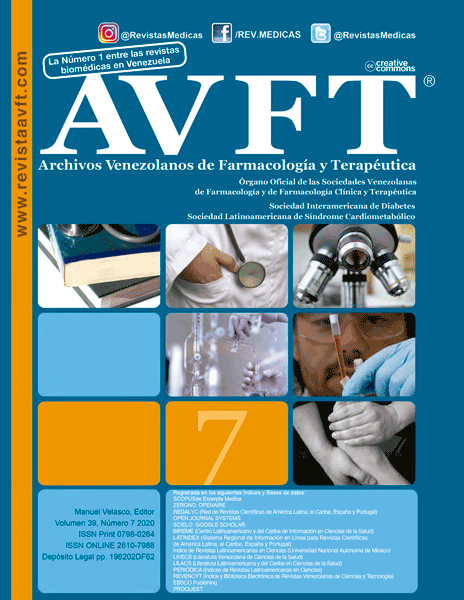The effect of alpha(1D)-adrenoreceptors selective blockade on the isolated rat heart
Keywords:
rat, isolated heart, alpha1D-adrenergic receptors, BMY7378Abstract
Alpha1-adrenergic receptors (α1-AR) mediate important adaptive cardiac functions, including physiological hypertrophy, contractility, and protection from multiple injuries, through the activation of various multifactorial signaling cascades. The effects of α1-AR on chronotropy and coronary circulation of the mammalian heart are poorly understood. The functions regulated by each receptor subtype are also still largely unknown. In addition, scientists often neglect the α1D subtype of the studied receptors due to the low density in cardiomyocytes. The effect of blockade of alpha1D-adrenergic receptors with BMY 7378 on the activity indices of the Langendorff heart of 20-, 6-, 3- and 1-week-old rats was studied. BMY 7378 at a concentration of 10-8 M had a negative chronotropic effect on isolated hearts in rats starting from 1 week of postnatal development. The inotropic reaction of the isolated heart in 20-week-old rats in response to the blocker was absent; while in 6-week-old rats it had a clear negative character. The α1D-adrenergic receptor blocker, BMY, 7378 (10-8 M) causes an increase in the coronary flow of the heart in adult rats and a decrease in 1-week-old rats. At the same time, it does not affect the coronary perfusion of the isolated heart of 3- and 6-week-old rats. An increase in the rate of coronary perfusion in 20-week-old rats indicates a decrease in the tone of the coronary vessels of the heart. In newborn rat pups, BMY 7378 perfusion caused an increase in the tone of the coronary vessels, which led to a decrease in the rate of coronary perfusion. In rats at these stages of postnatal development, α1D-adrenergic receptors may be important in the regulation of the coronary circulation of the heart. The results of the study show that α1-adrenergic receptors, in addition to providing the effects on coronary vessels, can mediate chrono- and inotropic effects on the rat heart in postnatal ontogenesis.




